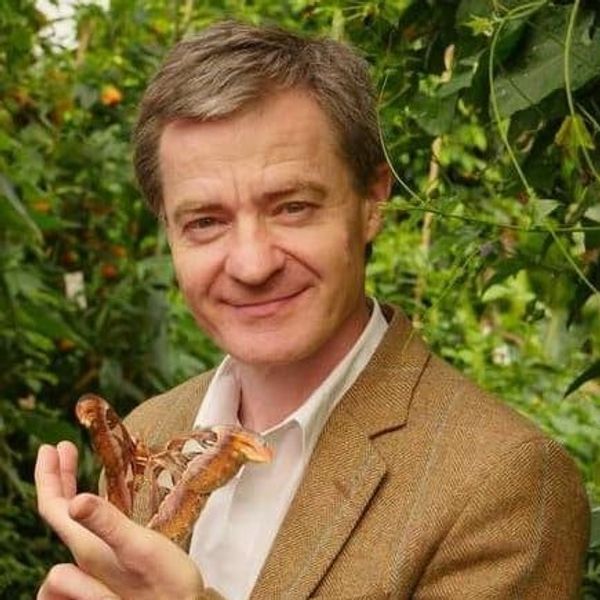Paul Pearce-Kelly
Senior Curator of Invertebrates and Fish
Zoological Society of London
Paul Pearce-Kelly is the senior curator of invertebrates and fish at the Zoological Society of London, where he has worked for over 40 years. During this time, he has worked on a number of pioneering conservation projects focusing on smaller wildlife species, like molluscs, crickets and spiders, and is a key influencer in the global zoo and aquarium community.
Speaking in 2017, after being recognised with the ZSL Staff Medal at ZSL Annual Awards, held at London Zoo, he said: “I have the greatest of respect for the smaller species fighting to survive alongside us, and am grateful to have been able to spend my career working to protect them."
In 2016, Pearce-Kelly and his team were able to reintroduce several species of Partula snails, many of which were extinct in the wild at the time, to their former French Polynesian island habitats. He has also spent a lot of time on conservation and reintroduction projects that support some native British wildlife species in decline, like the Barberry carpet moth, the British field cricket, the wart-biter cricket and the fen raft spider.
Reintroduction programmes are part of the conservation strategy at the Zoological Society of London, as Dominic Jermey, director-general of ZSL explained in an interview with blooloop in 2020:
“For example, the reintroduction of the scimitar-horned oryx in Chad, extinct in the wild. We reintroduced it from populations held by us, and by other zoos in the UK and the United Arab Emirates.
“Then, because we deal with all creatures great and small, there are the Partula snails. These were reintroduced to French Polynesia. And there is the mountain chicken frog, one of the largest species of frog in the world. This has been reintroduced to Montserrat and the other islands nearby, where they had been pretty much wiped out.”

